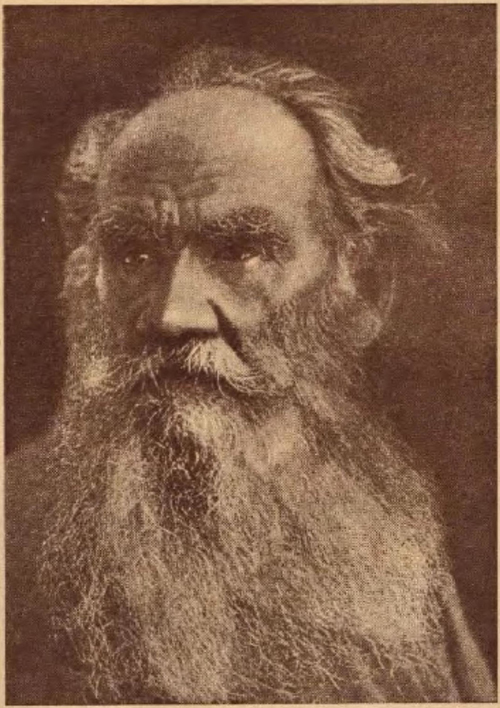
Your complimentary articles
You’ve read one of your four complimentary articles for this month.
You can read four articles free per month. To have complete access to the thousands of philosophy articles on this site, please
Philosophical Haiku
Leo Tolstoy (1828-1910)
by Terence Green
The fool thinks he leads –
Mad Corsican, History’s pawn –
Honest rustic folk

Count Lev Nikolayevich Tolstoy was a devoutly pious moralising ascetic vegetarian who just couldn’t keep his hands off the serving wenches. He believed in honesty at all times – so he honestly told his wife what he thought of her. Most marriage counsellors would advise against that. Born into great wealth, Tolstoy chose to live much of his life as a peasant. He was, in other words, your typical egotistic artist who believed that the usual rules of society did not apply to him. He was influenced by Pierre-Joseph Proudhon’s anarchist philosophy, and in a spirit of anarchy even helped himself to the title of Proudhon’s book La Guerre et la Paix for his most famous novel.
War and Peace (1869) is, undoubtedly, the greatest of all those books that people never read. But it is worth reading, for it manages, in a mere thousand or so snappy pages, to tell a riveting and complex story of love, betrayal, and family disaster; include superb sketches of historical personages; brilliantly evoke the chaos and upheaval of the Napoleonic wars; and stands as the single most compelling statement of a particular philosophy of history. At the time Tolstoy was writing, the ‘Great Man’ theory of history was popular. This said that history was the work of individuals – great men – who shaped our collective destiny by their individual genius and work. Rubbish, said Tolstoy. Individuals – no matter how great their egos may tell them they are – are mere playthings in the hands of History, a force far greater than any measly human. Leaders such as Napoleon may think they direct the course of events, but that’s just an illusion. Given Tolstoy’s view of his own centrality and significance to the universe, there is a wee touch of irony here, but no matter. Taking a literal view of Christ’s Sermon on the Mount, he believed that only a life of poverty could be a good and honest life; and when he wasn’t enjoying the luxury of his estate (or one of his serving wenches), he practised it fervently.
© Terence Green 2024
Terence Green is a writer, historian, and lecturer who lives in Eastbourne, New Zealand.









